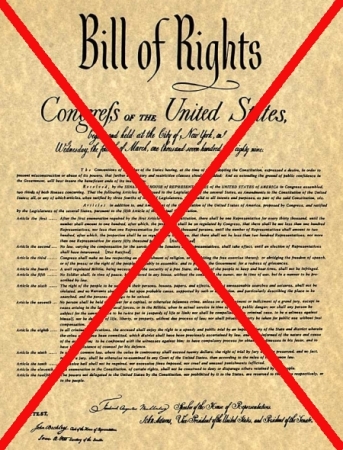Real pushback: Stanford Law forces out administrator who aided and abetted a mob

Stanford’s former administrator Tirien Steinbach:
gone because she was in favor of censorship and
mob rule
Bring a gun to a knife fight: It appears that common sense and civilized behavior at Stanford Law School is finally being considered as the only proper behavior for the future and present lawyers that school is supposed to be training.
This story begins on March 9, 2023, when a mob of students and faculty at Stanford, led by Tirien Steinbach, the school’s diversity, equity and inclusion dean, shouted down U.S. Court of Appeals Judge Kyle Duncan when he tried to give a lecture about the law for the school’s chapter of the Federalist Society.
At the time the school’s response was weak and inconsistent. Though it sent a letter of apology to Duncan, it also equivocated about punishing anyone who had misbehaved. No students were expelled or suspended, and Steinbach was simply put on leave, even as university officials attempted to portray her as the victim. As I wrote then:
[Law School Dean] Martinez still appeared sympathetic to Steinbach, expressing “..concern over the hateful and threatening messages [Steinbach] has received as a result of viral online and media attention.”
Now, four months later Martinez has finally announced that Steinbach is resigning her post, though even now Martinez appeared regretful that this resignation was necessary.
» Read more

Stanford’s former administrator Tirien Steinbach:
gone because she was in favor of censorship and
mob rule
Bring a gun to a knife fight: It appears that common sense and civilized behavior at Stanford Law School is finally being considered as the only proper behavior for the future and present lawyers that school is supposed to be training.
This story begins on March 9, 2023, when a mob of students and faculty at Stanford, led by Tirien Steinbach, the school’s diversity, equity and inclusion dean, shouted down U.S. Court of Appeals Judge Kyle Duncan when he tried to give a lecture about the law for the school’s chapter of the Federalist Society.
At the time the school’s response was weak and inconsistent. Though it sent a letter of apology to Duncan, it also equivocated about punishing anyone who had misbehaved. No students were expelled or suspended, and Steinbach was simply put on leave, even as university officials attempted to portray her as the victim. As I wrote then:
[Law School Dean] Martinez still appeared sympathetic to Steinbach, expressing “..concern over the hateful and threatening messages [Steinbach] has received as a result of viral online and media attention.”
Now, four months later Martinez has finally announced that Steinbach is resigning her post, though even now Martinez appeared regretful that this resignation was necessary.
» Read more

